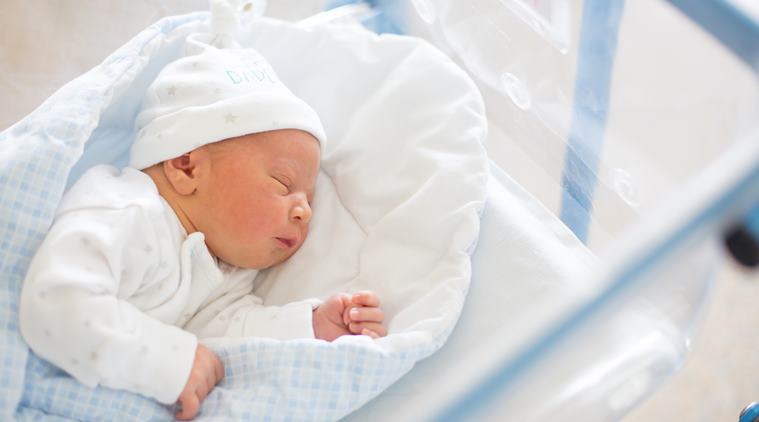How Long Do Premature Babies Stay in an Incubator
 Preterm babies need care within the first 2 weeks or a month of birth. (Source: Getty Images)
Preterm babies need care within the first 2 weeks or a month of birth. (Source: Getty Images)
Every twelvemonth, an estimated xv million babies are born preterm (earlier 37 completed weeks of gestation), and this number is ascension. Preterm birth complications are the leading cause of death among children under five years of age, responsible for approximately one million deaths in 2015.
Preterm birth in layman terms is used for babies built-in before 37 weeks of gestation is completed or fewer than 259 days since the first solar day of a woman'south concluding menstrual flow. Premature babies are naturally smaller than total-term babies and many counterbalance less than two pounds. Preterm birth is a major cause of death and a meaning cause of long-term loss of human potential amid survivors all around the world.
There are sub-categories of preterm nascence, based on gestational age:
- Extremely preterm (less than 28 weeks)
- Very preterm (28 to 32 weeks)
- Moderate to late preterm (32 to 37 weeks)
A special category of preterm babies is termed Extreme Preterm Babies (EPB), because they are and then immature that leaner in the "air" tin cause infection. Premature babies do non get immunoglobulins from their mothers and are therefore decumbent to infection. Information technology is of import that such babies are taken care of during the kickoff ii weeks to a calendar month of their birth.
Reasons for admission of an infant in an NICU
- Prematurity (24 weeks gestation or more)
- Intrauterine growth retardation/modest for gestational age
- Depression claret saccharide
- Respiratory (breathing) problems
- Infections
- Seizures
- Temperature instability
- Help with feeding
Why do premature newborns need special care?
Premature babies are niggling bodies that have underdeveloped parts, which include the lungs, digestive system, immune organization and skin. The advancements in medical engineering have made it possible for preemies to survive the first few days, weeks or months of life until they are strong enough to make information technology on their own. Hospitals have equipped themselves with Neonatal Intensive intendance Units (NICU) where infants are cared for in incubators or "open up warmers". Some low birth weight infants need respiratory back up ranging from extra oxygen (past head hood or nasal cannula) to continuous positive airway pressure (CPAP) or mechanical ventilation. Public admission is limited, and staff and visitors are required to have precautions to reduce transmission of infection.
When babies are born less than 32 weeks, they need to be cared for "almost like they are in the womb" so that they grow "as expected" and for this, we need an "artificial womb", which is nothing merely an incubator. But babies more than 32 weeks probably can do well without the need of an incubator in an open care organization.
Baby incubation
Incubators are self-contained units roughly the size of a crib equipped with a plastic dome. Because premature babies lack body fat, they are less able to regulate torso temperature. To this end, the incubator ensures the ideal environmental weather by either allowing the temperature to be adjusted manually or providing auto-adjustments based on changes in the baby's temperature. An incubator also protects the premature babies from infection, allergens, or excessive dissonance or light levels that can cause harm. It can regulate air humidity to maintain the integrity of the skin (which is very important for extremely preterm babies) and even exist equipped with special lights to treat neonatal jaundice which is mutual in these babies.
Types of incubators in a NICU
- Closed box incubators have a fresh air filtration organization which minimises the chance of infection and preclude the loss of moisture from the air.
- Double-walled incubators accept ii walls that can farther prevent heat and air moisture loss.
- Servo-control incubators are automatically programmed to accommodate temperature and humidity levels based on skin sensors attached to the baby.
- Open box incubators, likewise known as Armstrong incubators, provide radiant oestrus below the baby but are otherwise open up to the air, allowing for easy access.
- Portable incubators, also known as transport incubators, are used to motility the newborn from one function of the hospital to another or from one infirmary to another.
At the Neonatal Intensive Intendance Unit, through incubators, specialised medical, surgical and cardiology care is given to newborn babies. It is well-equipped with a protective environment which is dwelling for a limited period of fourth dimension with a caring staff, monitoring and alarm systems, respiratory and resuscitation equipment, access to physicians in every pediatric specialty, 24-hour laboratory service.
Premature babies often take breathing bug because their lungs are not fully developed. Total-term babies also tin can develop breathing bug due to complications of labor and commitment, nativity defects and infections.
For farthermost preterm infants, no matter how disheartening it may sound, the incubator provides the all-time opportunity to grow into the healthy, happy baby nosotros've always dreamed of. A meliorate engineering for better survival.
(The writer is Chairman & Neonatologist, Cloudnine Group of Hospitals, Bengaluru.)
Source: https://indianexpress.com/article/parenting/health-fitness/neonatal-care-incubation-for-preterm-babies-explained-5586105/
0 Response to "How Long Do Premature Babies Stay in an Incubator"
ارسال یک نظر